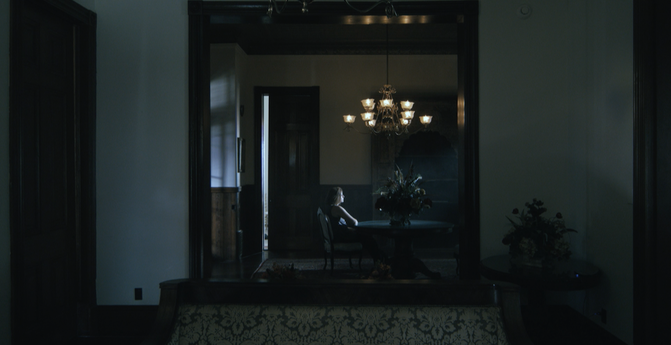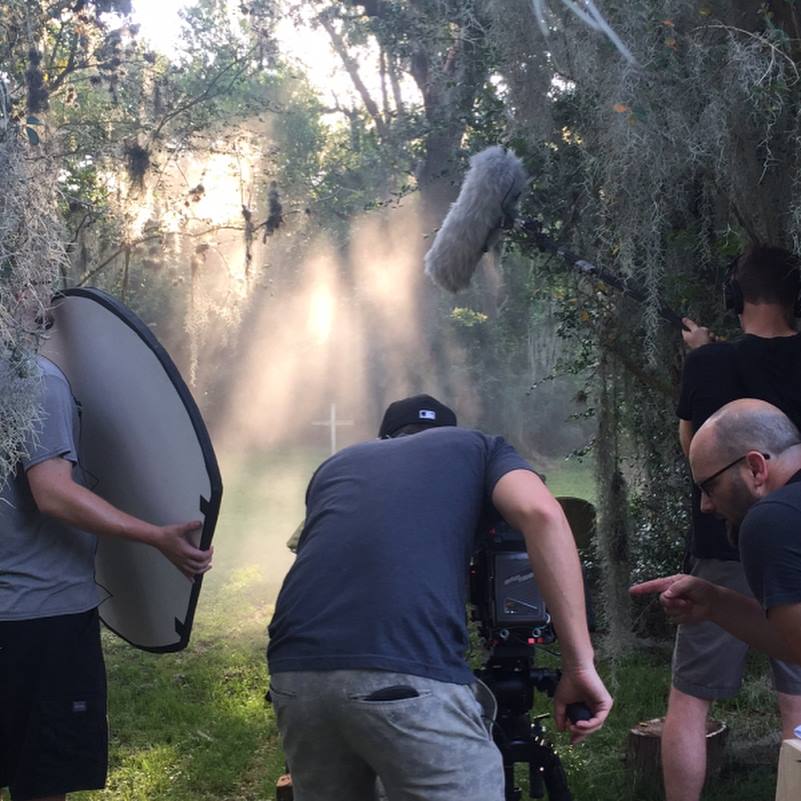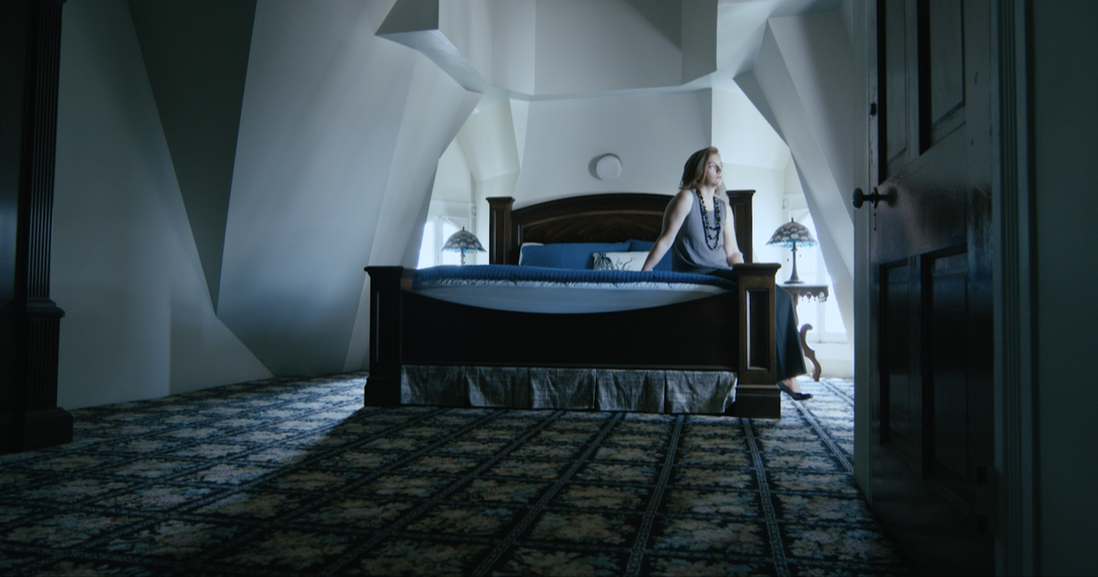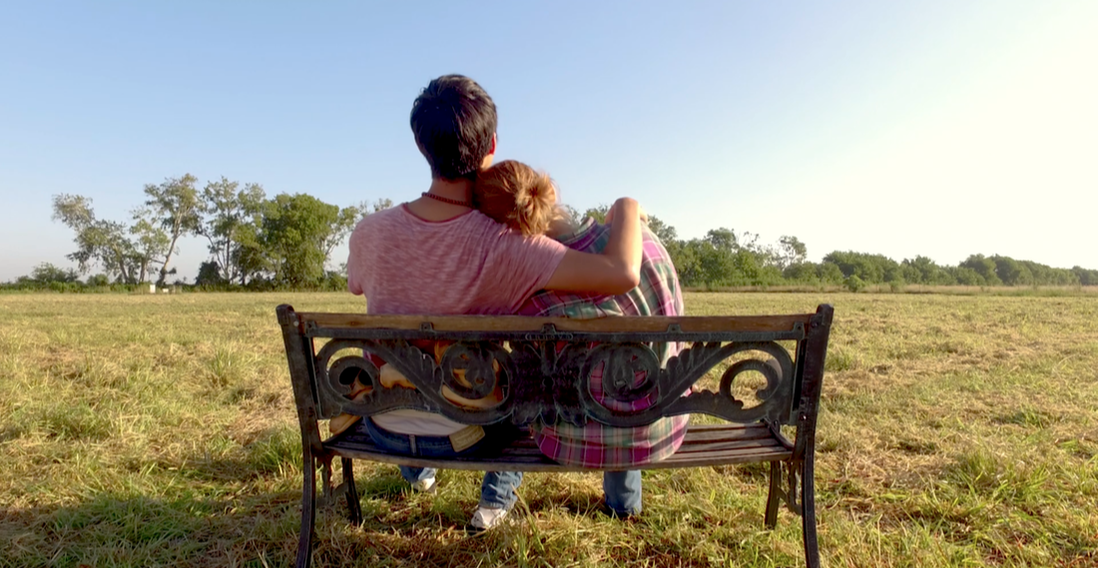 So I recently was a director for a short film as part of a speed competition. I had worked on someone else’s team last year as part of the same competition, and this year I spearheaded the effort. My team consisted of a mix of my students and local professionals in the Houston area, and it was pretty much the same team as the year prior but with a lot of extra hands on board. I’ve directed before, and I’ve done speed competitions before. I teach directing, and I coach students through the same process I went through on this shoot. I often say when I’m teaching that it’s really easy to say something, but it’s another thing altogether to do it. That totally proved true in this case. There were some things I did that were right on, and there were other areas where I definitely let the ball drop. There are some definite principles to directing films that were reinforced for me in this process. 1. Surround yourself with the best. Last year we had a good crew, but it was lean. This year the crew was nearly twice as large as it was last year. I had an AD, a DP, a producer, two AP’s, a Gaffer, an audio technician, an editor, and a sound designer. And my cast was fantastic. I love those people, and I would work with them any day of the week. Everyone was stellar. Everyone. Seriously. It’s hard enough to do what we do, and then in a speed competition you take away the two things that make it possible: time and money. The only reason this thing turned out as good it did was that everyone was top-notch. When problems came up, my crew solved them. When artistic differences were present, they were brought up and discussed. We got what we did because people didn’t bury their artistic opinions. Some people could see this as threatening or discouraging, but I thrived on it. I was constantly having to defend my vision for the story, and that nearly always made it better. Nearly? I’ll talk about that more later.  2. Know what you want. Having to defend your vision makes you refine it, sometimes on the spot. This is especially true when you start your production window by pulling the genre for you film out of a literal hat. It’s easier when you’ve been able to steep yourself in a story or a world for a long time. We also had a few elements that we had to include, but those are minor things. Usually, a Director is having to manage the demands of a producer, and balance that with the artistic input of those under him or her. In this case, I was having to balance what I had in my mind with what all the brilliant people around me had in their minds. Most of my conflict was internal. I would know what I wanted, and then someone would come to me with a great solution or alternative that was brilliant. How does someone make that decision? I think it depends on the situation. I’m supposed to be over the entire story, and from that perspective I should be able to make the decision that fits best into the context of the entire story, which individual artists may not always have. But this is a speed competition with friends, and everyone is invested. Where do I draw the line between friendship and creative control? There were times when I would have liked to have pushed back on a creative element, but either didn’t have a good enough argument to do so without reverting to a “because I’m the director” kind of argument. Friendships don’t thrive on that. I need to find a way of saying, “Listen, I can’t give you a great reason or argument right now, but I just need you to do it this way.” Actually, that sounded kind of good. Maybe I’ll just use that in the future. 3. When problems arise, it’s up to you to decide. This is so true. Here’s where things got tricky for me in this context: We all came together after the draw and came up with the story together. We brainstormed for about three or four hours, and I didn’t leave until we had a basic arc that we could all get behind. Then me and my longtime friend and co-producer hid away in my office until we had a completed script. The benefit to this process is that there are a myriad ideas that get kicked around in a large group like that, so when you hit a roadblock further down the road you have some previously-discussed fallback positions. However, because of the time crunch, It’s almost never a clean transition. There’s also some reason you didn’t go with that option in the first place, so it’s usually not as good as your first choice. Also, not everyone is around the table on set. So sometimes problems with one of your workarounds aren’t brought to light until it’s too late. Ultimately you get/have to make that decision. When the credits roll at the end, it’ll be your name on the stupid thing, so act like it. 4. Preproduction is priceless. I had a phenomenal producer. She came on board months before the production, and I gave her a list of possible locations I would want. (This is not against the rules of the competition.) She did it. She made a spreadsheet and started reaching out to places. So, when we drew our genres, we could tailor the story to the people and places we had. This allowed us to be really creative in creating our story, and raised our production value immensely. In fact, she won an award for “Best Locations.” Is this a completely made-up category? Absolutely. But I’m glad it existed because she totally deserved it.  TAlso, I didn’t have a storyboard this year. My poor AD didn’t really have a shooting script or shot list either, so we were kind of having to make it up on the fly. She did a great job of keeping us on target, but I really wish I’d had those things for my own sake. My head got cloudy, and I found I was having a harder time making decisions than I would have liked. Next time… 5. I love directing and I hate it. I love creating collaboratively with competent people, but it definitely comes with the weight of being responsible for the artistic success of a story. The Director is the thermostat of the set. He or she will determine the atmosphere that all these wonderful creative people are working in. Some love to rule with an iron fist, and will take the first opportunity to strike fear into everyone around them. They justify it by saying that at least they got their way. That's not my jam. The other end of that spectrum is the director who is so busy trying to keep everyone around them happy that they don’t push for their vision. This is what Elia Kazan said about some of the first films he directed. “I used to spend most of my time straining to be a nice guy so people would like me.” And as a result, we have the film Sea of Grass. Let me save you the time…don’t watch it. I would feel bad saying that, but so did Kazan. I love being around people, and I love being able to bring out their best, but I often struggle with not being a little more hard-nosed. I need to stay malleable enough to take the good advice of excellent artists, but also I need to have the mettle to stand up for my ideas. I think I ran a pretty good set, but I also wish I’d taken 5 minute breaks throughout the day—told everyone to just go stare at a tree for five minutes. I think we’d have had a better final outcome if I hadn’t pushed so hard. I also wish I’d pushed harder and gotten the shots I really wanted. 6. At the end of the stupid movie, your name is on it. I feel like this has to be my new focal point. I mean, honestly, I need to make films NOT in 48 hours. There's a reason we take time to make art. Films are films, however, and not life. I need to make films, but I need to keep balance in my life. And when I do, I need to be able to know the reason for every beat of the film. And when it gets challenged I need to stay open to suggestion so that I can capitalize on the amazing people around me, but also know when what they are bringing me isn’t right. They work hard, and they get their fulfillment wherever they get it from in their process, but at the end of the day…I’m responsible. I need to work at being able to communicate my vision, and I need to work at fighting for it. This is hard for me to say, but it’s my film, and I’m going to act like it. We did really well in the competition, and I am incredibly proud of everyone who poured themselves into it, but I was ultimately disappointed. I know the potential that our story had, and we didn’t quite get it there. It is no one's fault except mine. I think I really feel the weight of the other wonderful people who worked on this that put their trust in me to steer this project to a very successful conclusion. In the end, I had too much story for the limited time allowed by the competition. I have a 10 minute film and I had to get it down to 7 minutes. Also, we did really well the year before, and I was really hoping we could have done better than last year. I loved the experience, but I’m hoping I can spin it out into other products that I’m even more proud of. Steven Spielberg once said, “You shouldn’t dream your film, you should make it.” I will. And I will learn from that too. I’ll still mess up, but I’ll be a better director and it’ll be better than the film before it.
And I hope to continue that cycle for a very long time.
1 Comment
|
AuthorJesse is a professor at Houston Baptist University. He also directs the school's theatre club, does handyman projects on the side, and produces features and short films. A Pastor's kid/missionary kid, his view of life is at the very least unique. And hopefully helpful. Archives
May 2020
Categories |



 RSS Feed
RSS Feed
